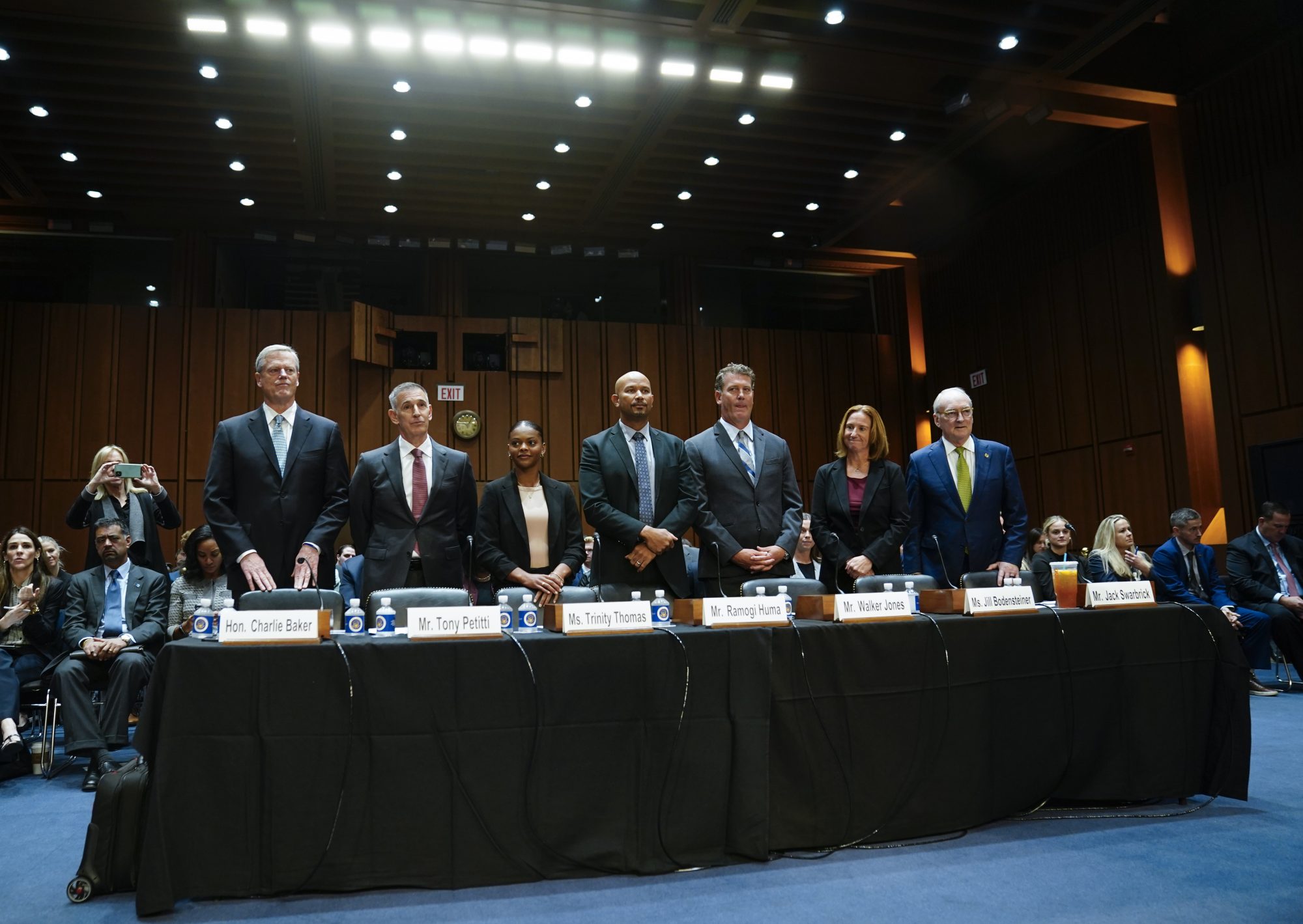On Tuesday, the Senate Judiciary held the 10th Congressional hearing on name, image, and likeness (NIL) rules in college sports.
Seven witnesses — including NCAA President Charlie Baker, Big Ten Commissioner Tony Petitti, and Notre Dame athletic director Jack Swarbrick — convened on a panel for a two-and-a-half-hour session that covered topics ranging from NIL and athlete employment to the Israel-Hamas war.
Here are the three biggest takeaways from the hearing.
Lack of Consensus on NIL Bill
As has been the case since 2020, there appeared to be no consensus on the details of an NIL bill — beyond that most appear in favor of a uniform national standard.
Multiple bills have put forth largely uncontroversial ideas, like the concept of a registration process for agents. But there was no agreement from the panel about the role of NIL collectives, how to enforce a prohibition on pay-for-play, or whether to legislate separate but related issues like the transfer portal.
In fact, there was more consensus around Congress passing laws related to athlete health and safety than the nuts and bolts of an NIL bill.
Sen. Richard Blumenthal (D-Conn.) asked if any panelists opposed Congress passing laws creating medical trust funds; guaranteeing scholarships of athletes who suffered career-ending injuries; enforcing health and safety standards; and requiring high-revenue schools to support covering insurance and medical costs. None of the panelists raised objections.
Protecting Amateurism
Multiple panelists reiterated the NCAA’s longstanding request for Congress to pass a law protecting the concept of amateurism — the idea that athletes are not considered employees under federal labor law.
This request is more important for supporters of amateurism than ever, as this could be the last chance for Congress to pass a law that would clarify the status of athletes before courts and the NLRB decide for themselves.
In addition to the two NLRB cases — both of which will have had hearings by the end of the year — there’s also a federal court case called Johnson v. NCAA over athlete employment status.
Petitti, for example, said the conference would support a bill that would “codify benefits for student-athletes … without the need to classify student-athletes as employees.”
Possibility of a Union?
Perhaps the biggest surprise: NCAA President Charlie Baker did not outwardly oppose the idea of a form of a college athlete union, despite being opposed to athlete employment status.
Sen. Josh Hawley (R-Mo.), asked Baker flat-out if he would support an athlete union to have a greater say on multiple topics, including NIL and athlete compensation.
Baker noted that he wouldn’t speak to the two NLRB cases currently pending relating to athletes’ rights to unionize. He did note that he had concerns about “creating a system where you have one brush” to paint all athletes as employees (a requisite for a union.)
However, he did not say he was against the idea of athlete unionization.






![[Subscription Customers Only] Jun 15, 2025; Seattle, Washington, USA; Botafogo owner John Textor inside the stadium before the match during a group stage match of the 2025 FIFA Club World Cup at Lumen Field.](https://frontofficesports.com/wp-content/uploads/2026/02/USATSI_26465842_168416386_lowres-scaled.jpg?quality=100&w=1024)
![[Subscription Customers Only] Jul 13, 2025; East Rutherford, New Jersey, USA; Chelsea FC midfielder Cole Palmer (10) celebrates winning the final of the 2025 FIFA Club World Cup at MetLife Stadium](https://frontofficesports.com/wp-content/uploads/2026/02/USATSI_26636703-scaled-e1770932227605.jpg?quality=100&w=1024)









